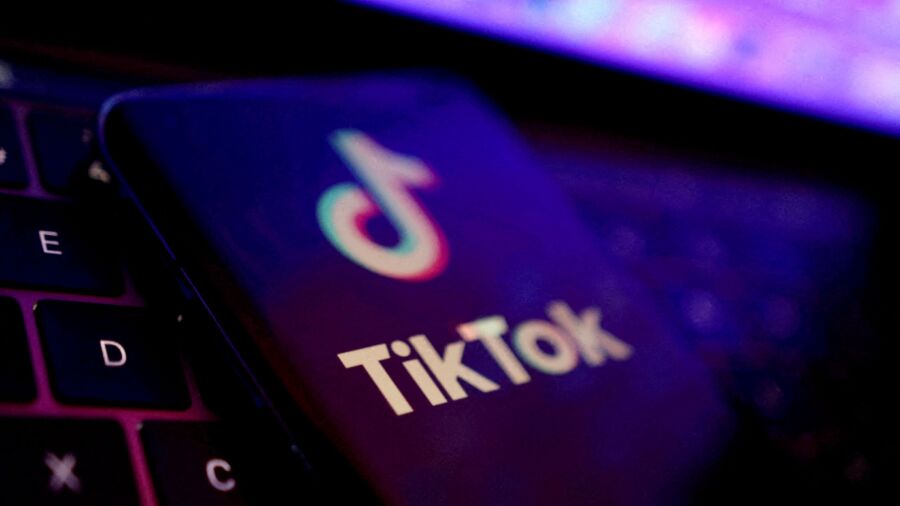A recent report (pdf) has found that nearly 60 percent of young adults who have TikTok accounts would rather give up their voting rights than social media.
Recent national test scores in history and civics also indicated a significant drop in students’ perception and understanding of what it means to be a good citizen.
In the survey conducted by the Reboot Foundation, the highest rates of perceived social media importance were observed among those aged 13 to 17. Close to 65 percent admitted they perceive viewing and sharing online content to be of more importance than casting their vote at the ballot box.
The figures suggest that young people increasingly lack a holistic understanding of their role in civic life and the associated respect for these roles, further hinting at a politically and culturally fractured populace.
Moreover, the findings also indicate that less importance is allotted to significant cultural norms that serve as the foundation of a functioning society, such as the principle of freedom.
Addictive Social Media
According to The Federalist staff writer Evita Duffy-Alfonso, social media is purposely designed to be addictive to young people.
“It makes perfect sense why they would say, I’m going to keep my TikTok—which is like heroin to young people—versus keep my voting rights. I think it’s a great example of why we should not be lowering the voting age, which Democrats have been pushing for for years now,” she told Fox and Friends First.
The survey also shows that young people are effectively less appreciative of the things they would be giving up, according to Helen Lee Bouygues, president of the Reboot Foundation, who wrote about the survey in the New York Post.
Reboot was founded by Bouygues as a tool to promote critical thinking and reflective thought in a time of vast technological change.
Influence on Young People
In this instance, the report (pdf) examined how the social-media app TikTok influences the lives and attitudes of young people.
It illustrates the vulnerability of young people in terms of how social media can shape what they think or believe to be true, as for many teenagers and young adults it represents a lifeline to the surrounding world.
However, not only does social media function as their predominant source of entertainment—it also provides a platform for young people to stay up-to-date on topics such as politics, trends, sports, and much more.
Excessive Use
This is highlighted by the fact that 23 percent of young people spend in excess of four hours per day on TikTok alone.
According to Bouygues, this in itself is dangerous. It is generally advised that teenagers should spend no more than two hours a day in front of a screen in order to ensure a balanced and overall healthy lifestyle.
In addition, Reboot established a clear link between the amount of time spent on TikTok and young peoples’ trust in the information they take in through the app. Over 40 percent of young TikTok users who utilize the platform heavily consider the information shared on it to be reliable. In contrast, only 23 percent of those who use the app for less than an hour a day view the information as trustworthy.
Recent studies, however, suggest that almost one-fifth of content on TikTok contains some form of misinformation. This has prompted Congressional lawmakers and state legislators to take action, as more clarity now exists regarding the dangers social media pose to young users.
Recent legislation introduced in the Senate—the Protecting Kids on Social Media Act—would bar those under 13 from having social media accounts. The proposed legislation has bipartisan support and governors in several states have already approved similar measures, marking a potential sea-change in our relationship with social media.
And on May 17, Montana became the first U.S. state to impose a complete ban on TikTok.
Role of Parents
Limiting the influence of Big Tech is only part of the solution, however. Parents also need to be encouraged to play a more conscious role in the home environment.
According to Bouygues, parents should take their child getting a social media account as seriously as a teen getting a driver’s license.
Moreover, parents should play a decisive role in setting adequate boundaries, including how much time children spend on the platforms, as well as closely monitoring their children’s activities. Most importantly, however, they should assess if their children should even be on social media.
Bouygues goes on to say that it’s the parents’ job to ask their children to put down their phones—not just at the dinner table, but also at their schools and in other situations.
The rise of social media has surely contributed to significant changes in the way we communicate and interact with each other, both in positive and negative ways.
Nonetheless, the issue is exacerbated by growing concerns over Chinese surveillance programs and intelligence gathering through the social media platform, which has proven to be particularly so as the platform continues to grow in popularity among young Americans.

